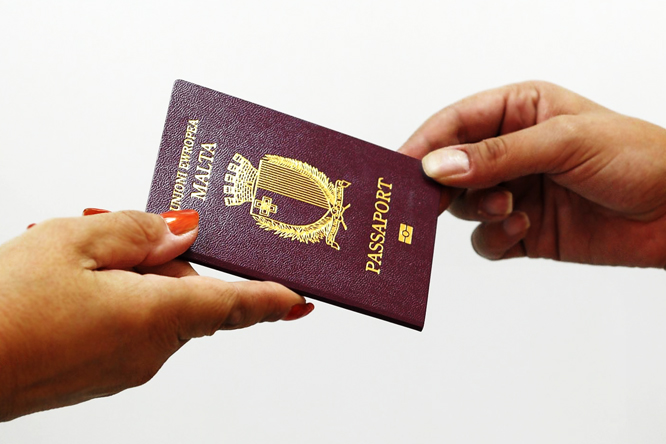The island’s Parliament has approved a measure that allows an immigrant to acquire a passport for 650,000 €. The Prime Minister Muscat thinks it will attract rich investors
Starting today, for all practical purposes, becoming a European citizen, may be as easy as catching a plane, going to Malta, and dipping into your billfold. The Maltese Parliament has approved a national measure to sell citizenship to non-EU applicants. What’s the price of a Maltese passport? Just (it goes without saying) €650,000 plus eventual commission charges. Becoming a citizen of the Mediterranean island, even if it is an expensive investment, would however open doors for all non-EU applicants to all 28 countries of the European Union. In fact, being Maltese would also mean being a European citizen, thereby enabling free movement in all EU member states and the acquisition of all other rights under Community law.
Maltese Prime Minister, Joseph Muscat, said that the newly approved program is designed to bring the island resources by attracting “high-value” people and who would potentially have the economic means to invest in the country (and Europe). According to Muscat, his government’s initiative could bring a gain of approximately €30 million already in the first year after in effect (which means a sale of about 45 passports).
However the Maltese government’s action has raised concerns from various political groups in opposition, who are concerned that the island might be at risk of being regarded as one of the Caribbean tax havens because of the lack of any specific link between citizenship and the applicant’s actual intention to invest in the country. A similar proposal was already launched in 2012 by Bulgaria; they however bound granting national citizenship to applicants who proved they were ready to invest a figure of at least 650 thousand dollars (500 thousand euro) in the country.
However the government insists that all applications will be checked thoroughly to prevent granting citizenship to criminals and people with criminal records. Eric Major, CEO of Henley and Partners, the international group that will be responsible for program management, told the Maltese media they expect to reach between 200 and 300 applications for citizenship.
The Commission has opted for a cautious “no comment” on the issue, merely reminding that it is exclusively the member states’ responsibility to determine the conditions for national citizenship. However, it is clear this initiative also has consequences at a community level. If other countries take steps similar to the Maltese ones, using the “sale” of citizenship as a tool to clean up balance sheets or “round up” the national income, at this point the situation would become anything but insignificant, even for European institutions.
Marco Frisone






![Stanchezza cronica. Un male che interessa due milioni di persone solo nell'Ue [foto: Carlo Carino/imagoeconomica]](https://www.eunews.it/wp-content/uploads/2025/01/Imagoeconomica_1935833-120x86.jpg)